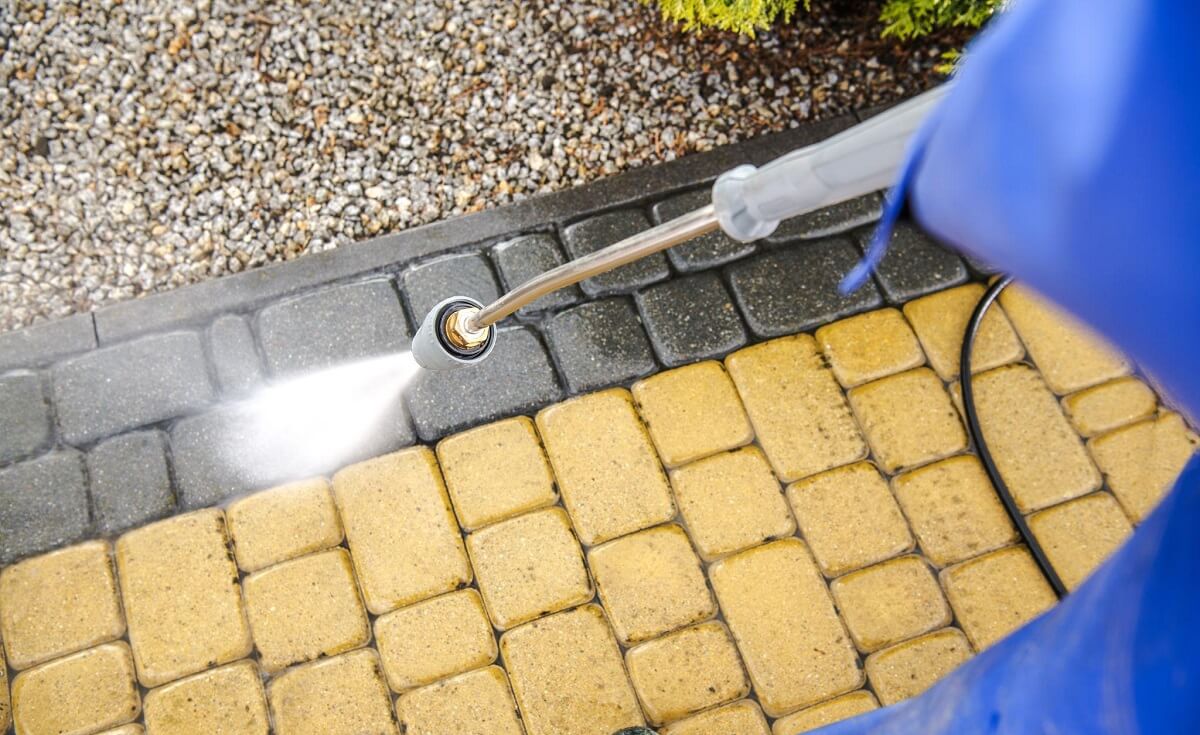Start The Process
Submit your contact details & we'll reach out to you shortly.

As homeowners and property managers, we all want our homes and buildings to look their best. A key part of maintaining the exterior of a structure is regular cleaning. But when it comes to cleaning your home’s exterior, there’s a big decision to make: should you opt for soft washing or pressure washing? This is a question that confuses many, but fret not! In this comprehensive guide, we’ll explore the ins and outs of both softwash and pressure wash methods, helping you make an informed decision.
Before we dive deep into the softwash vs pressure wash debate, it’s crucial to understand what these methods are.
Soft Washing
Soft washing is a gentle cleaning method that uses low-pressure water, combined with specialized cleaning solutions. The pressure involved in soft washing is usually less than 500 PSI. The process involves applying a cleaning solution to the surface, allowing it to dwell and break down dirt, grime, and organic material, then gently rinsing it off.
Pressure Washing
On the other hand, pressure washing involves using high-pressured water to blast away dirt, grime, and stains from hard surfaces. Pressure washing systems typically operate at pressures ranging from 1,300 to 2,800 PSI or more. Unlike soft washing, pressure washing primarily relies on the high pressure of water to clean surfaces, and does not typically use cleaning solutions.
Now that we’ve established what soft washing and pressure washing are, let’s delve into the key differences between them.
The areas of application for soft washing and pressure washing also differ significantly. Soft washing is primarily used for delicate surfaces that could be damaged by high pressure, including roofs, siding, wood panel siding, screens, and outdoor furniture. On the other hand, pressure washing is ideal for resilient surfaces like concrete, brick, stone, metal, and hardwood.
Soft washing extensively uses cleaning agents to aid in the cleaning process. These may include bleach, surfactants, neutralizers, and odor removers. On the other hand, pressure washing relies more on the force of the water and may not necessarily require the use of cleaning agents.
Like any cleaning method, soft washing comes with its own set of advantages and drawbacks.
Pros of Soft Washing
Cons of Soft Washing
Pressure washing, too, has its advantages and disadvantages.
Pros of Pressure Washing
Cons of Pressure Washing
Soft washing is typically the preferred choice when dealing with delicate surfaces or when you need to clean off organic material like mold, mildew, and algae. It’s ideal for cleaning:
Pressure washing is best suited for hard, durable surfaces that can withstand high pressure. It’s the go-to choice for cleaning:
When deciding between soft washing and pressure washing, it’s crucial to consider the type of surface you’re dealing with, the kind of dirt or stain you need to remove, and the potential for damage. As a general rule of thumb, softer, more delicate surfaces, as well as surfaces with organic growth, are better suited to soft washing. Meanwhile, hard, resilient surfaces that are heavily stained or dirty might benefit more from pressure washing.
However, it’s always best to consult with a professional cleaning service like Pro Clean Plus to make the right choice. Professional cleaners have the knowledge, skills, and equipment to determine the most appropriate and effective cleaning method for every situation.
Understanding the differences between soft washing and pressure washing can help you make an informed decision about the best way to clean your property’s exterior. Each method has its strengths and is suited to different situations. By considering the type of surface and the nature of the dirt or stains, you can choose the method that will give you the best results. When in doubt, don’t hesitate to reach out to a professional cleaning service for advice.
In conclusion, whether you opt for soft washing or pressure washing, regular exterior cleaning is a crucial part of property maintenance. Not only does it enhance your property’s curb appeal, but it also contributes to the longevity and durability of your surfaces. So, choose wisely, and keep your property looking its best!